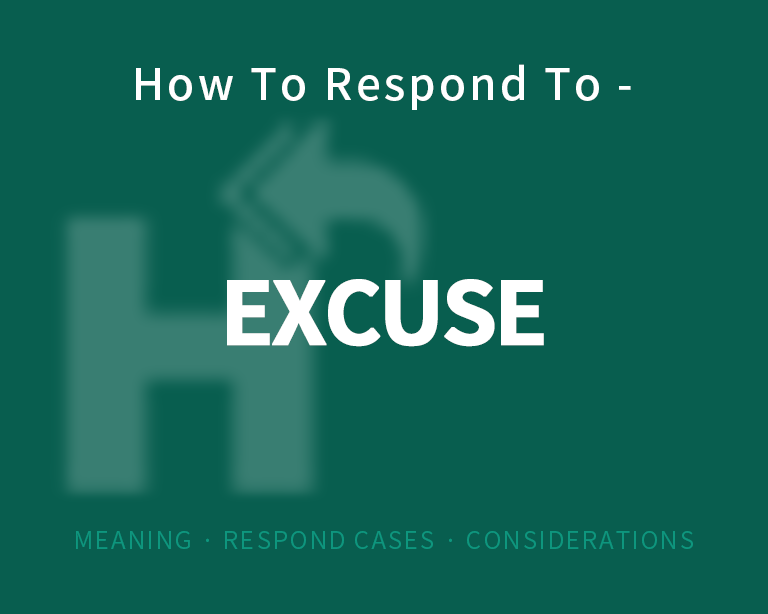The Best Way to Respond to Excuse?

Responding to excuse is a difficult thing to do because excuses can often feel like a way to avoid responsibility or deflect blame. It can be challenging to respond effectively without causing defensiveness or conflict.
What is Excuse in a Conversation
An excuse is a reason or explanation given for why something was not done or why a mistake was made. It can be expressed in different ways, from a valid reason to an attempt to shift blame onto someone or something else.
Specific Cases of Excuse
Case: Your employee gives an excuse for not completing a project on time.
Response: ""I understand that there were some challenges, but I need to emphasize the importance of meeting deadlines. Let's work together to find a solution and ensure that this doesn't happen again in the future.""Case: Your friend gives an excuse for not showing up to a planned event.
Response: ""I understand that things come up, but it's important to communicate with me in advance so I can plan accordingly. Let's reschedule for another time.""Case: Your partner gives an excuse for not doing their share of the household chores.
Response: ""I understand that you may have had a busy day, but it's important that we both contribute to keeping the household running smoothly. Let's work together to create a plan for sharing responsibilities.""
Thinking About the Response
When responding to an excuse, it is important to take a step back and think about the situation. Ask yourself why the person is making an excuse and what their underlying motivations may be. Responding with anger or frustration will only escalate the situation.
Considerations
Some considerations to keep in mind when responding to excuse include:
- Keeping a calm and respectful tone
- Acknowledging the other person's perspective and feelings
- Being clear about expectations and consequences
- Seeking to understand the reason behind the excuse
- Encouraging problem-solving and accountability
Conclusion
In summary, responding to excuse can be challenging, but it is important to approach the situation with empathy and understanding. By setting clear expectations and consequences and encouraging accountability, we can work together to find solutions and prevent excuses from becoming a pattern. Remember to practice active listening and communication skills in all situations.